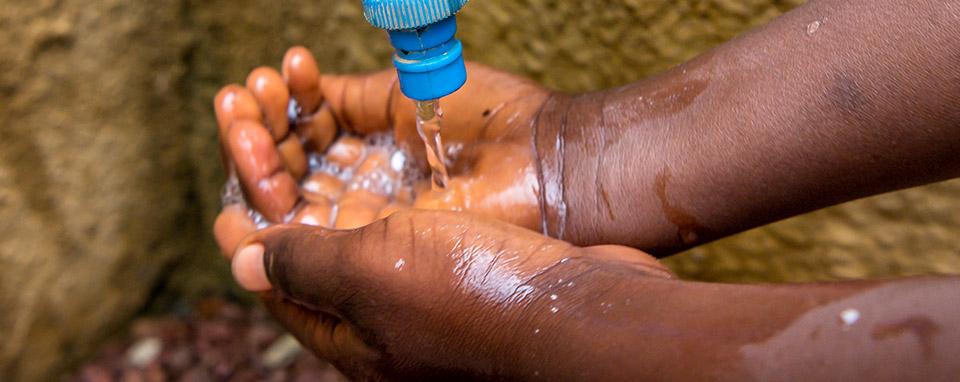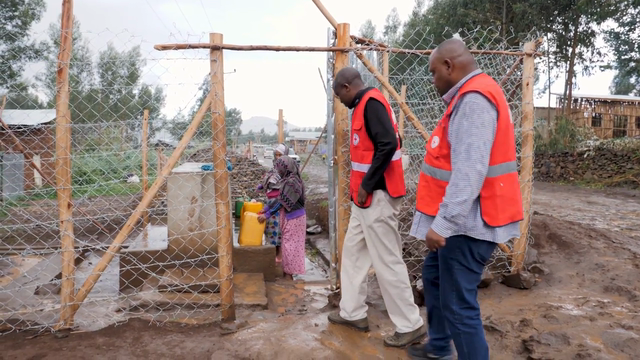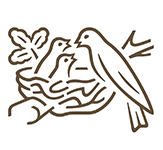Water for All
Safe water, sanitation and hygiene matters
By Carlo Galli, Head of Sustainability at Nestlé Waters
Jumping in the shower each morning, or taking a bath, is something many of us take for granted. After all, access to safe water, sanitation and hygiene (WASH) is a basic human right.
But did you know that 61% of people worldwide lack access to safely managed sanitation, and 28% lack access to a safely managed water supply?* (WHO / UNICEF JMP 2019) Every year millions die from diseases caused by an inadequate water supply, sanitation and hygiene.
Millions more people find that their life quality suffers, particularly kids. A 2018 UNICEF report found that 31% of schools lack access to clean drinking water, 34% lack decent toilets and 47% don’t have good hygiene facilities.
New AWS Standard
Like many businesses, Nestlé’s long-term success depends on sustainable access to water for our operations. We want and need healthy workers and thriving communities wherever we operate, which is not possible without WASH.
Support for WASH starts within the four walls of our factories. Nestlé was among the very first companies to sign and implement the World Business Council for Sustainable Development (WBCSD) WASH pledge in 2014, committing to providing access to safe water, sanitation and hygiene in the workplace for all direct employees.
To date, over 750,000 people worldwide have benefited from water, sanitation and hygiene projects we have supported near Nestlé factories. Our long-term partnerships with businesses, associations and NGO partners like the International Federation of the Red Cross (IFRC) are vital to this work.
At World Water Week in Stockholm I’ll be discussing the importance of WASH, and its place in the revised Alliance for Water Stewardship Standard. As an AWS Founding Partner since 2014, Nestlé Waters has committed to certifying all our sites by 2025, and the standard is central to our Caring for Water approach.
Why does the AWS standard matter? Well, it gives businesses a robust, independently verified framework to understand a site’s water usage and work progressively to achieve four outcomes: sustainable water balance, improved water quality, good status of important water-related areas and good water governance.
We recently worked with AWS and its other members to develop Version 2.0 of the standard. The most significant change is a new fifth outcome: ‘Safe water, sanitation and hygiene for all’ (WASH), in line with UN Sustainable Development Goal 6. Nestlé backed this change – this week I’ll speak on a panel to discuss why.
WASH helps communities thrive
One good example of WASH in action is at Manderegi Primary School, near our Nestlé Pure Life factory in Abaji, Nigeria. Several years ago, one teacher told us that some local kids didn’t go to school because they lacked clean bathing water at home. Locals had to walk a kilometer to fetch unclean water from the local river for their needs.
Things changed for the better in 2016, when Nestlé Waters supported the building of a water access point for villagers, meaning they no longer had to walk to the river. This also helped improve school attendance. A second water access point was built this January at the school, and we also funded upgrades to toilets and classrooms.
At Nestlé, we want to use AWS as a platform to promote water stewardship, but also the importance of WASH, and to trigger wider industry action. We stand behind this new, more holistic AWS standard.
Nestlé will continue to achieve AWS certification for our sites worldwide whilst calling on other companies to adopt the standard. By doing so we want to help achieve the vision of ‘Water for society – including all’. That‘s the theme of World Water Week this year, inspired by SDG 6.
Related video: WASH project in Ethiopia



